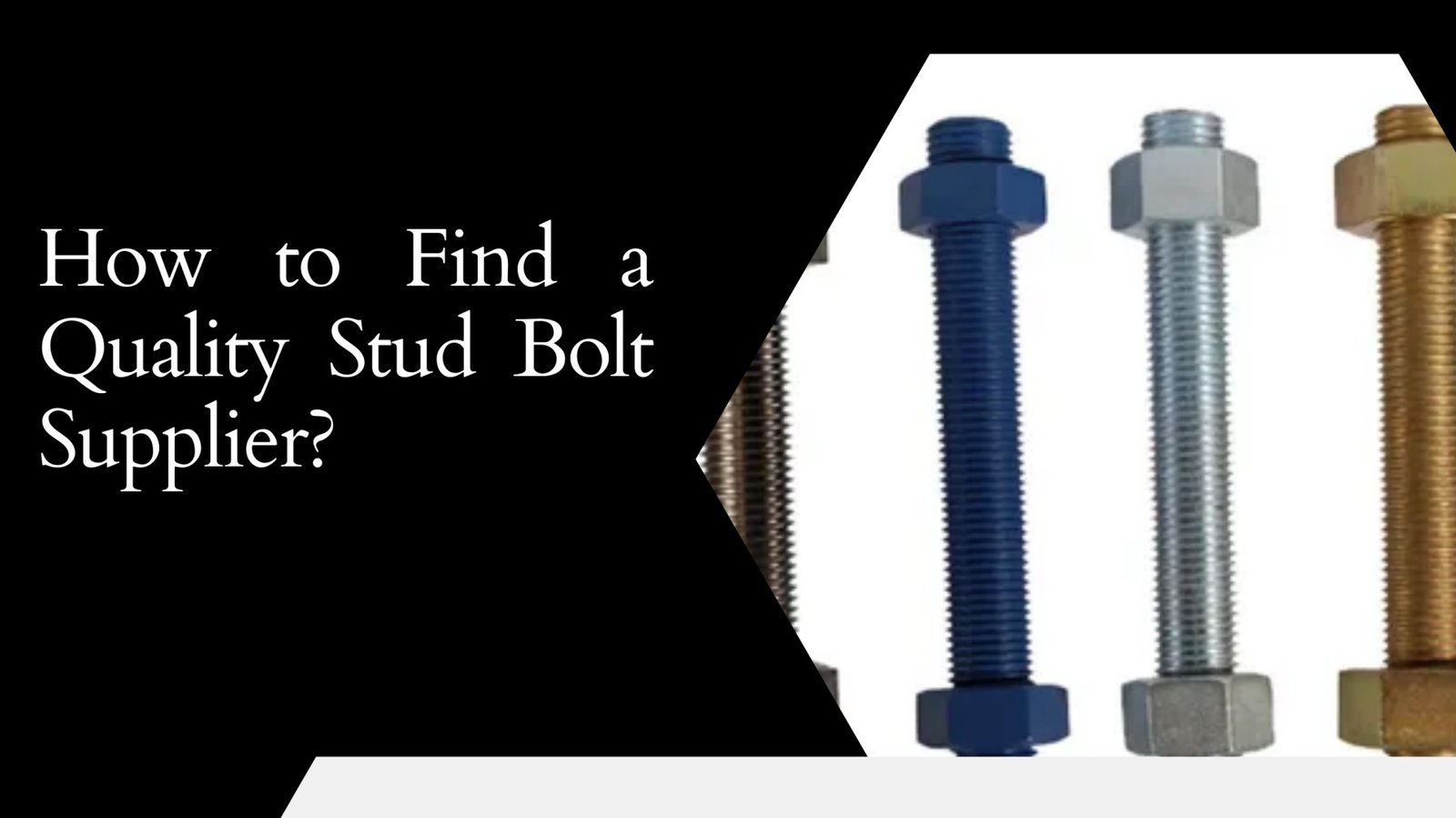Stud bolts are critical components in various industries, including construction, automotive, oil and gas, and manufacturing. These fasteners ensure the secure and stable assembly of heavy-duty equipment, pipelines, and structural frameworks. Given their essential role, sourcing stud bolts from a reliable supplier is crucial to maintaining quality, durability, and compliance with industry standards. Finding a quality stud bolt supplier requires careful consideration of various factors, including material quality, certifications, reliability, and customer service. This article explores the key aspects to consider when selecting a stud bolt supplier to ensure optimal performance and longevity.
Note :- Businesses benefited from Stud Bolt supplier in UAE, with Oman Ocean offering exceptional quality and timely delivery. Industries relied on our expertise for secure fastening. Reach out now for superior stud bolts!

Evaluating Supplier Reputation and Experience
A supplier’s reputation and industry experience are fundamental indicators of their reliability. Established suppliers with years of experience in the fastener industry are more likely to provide high-quality products that meet industry standards.
Checking Industry Presence and Track Record
A quality stud bolt supplier should have a solid track record of delivering reliable products to various industries. Researching customer testimonials, industry affiliations, and case studies can provide insight into their market standing and the quality of their products.
Looking for References and Client Reviews
Client reviews and testimonials offer valuable information about a supplier’s credibility. Companies with a history of positive feedback and repeat customers are more likely to provide consistent product quality and reliable services.
Assessing Material Quality and Manufacturing Standards
The material used in stud bolts significantly impacts their durability, corrosion resistance, and performance in different environments. Quality suppliers adhere to strict manufacturing standards and offer a range of material options.
Ensuring Compliance with Industry Standards
A reputable supplier should adhere to international standards such as ASTM, ASME, and ISO certifications. These standards ensure that the stud bolts meet specific mechanical and chemical requirements for strength and durability.
Evaluating Raw Materials and Production Techniques
The best stud bolt suppliers use high-quality raw materials such as carbon steel, stainless steel, alloy steel, and nickel-based alloys. The manufacturing process, including heat treatment, threading precision, and surface finishing, should be scrutinized to ensure compliance with industry specifications.
Verifying Certification and Quality Assurance
A quality stud bolt supplier should have proper certifications that validate the quality of their products and manufacturing processes.
Checking ISO Certification and Third-Party Testing
ISO 9001 certification indicates that the supplier follows a structured quality management system. Additionally, third-party testing and inspection reports provide further assurance that the products meet required specifications and safety standards.
Reviewing Test Reports and Quality Control Measures
A reliable supplier should provide material test reports (MTRs) and certificates of compliance. These documents confirm the composition, mechanical properties, and performance of the stud bolts, ensuring they meet project-specific requirements.
Evaluating Supply Chain and Delivery Efficiency
Timely delivery is crucial in industries that rely on stud bolts for critical infrastructure and machinery assembly. Delays can result in project setbacks and increased costs.
Assessing Production Capacity and Inventory Management
A dependable supplier should have a well-managed inventory system to ensure the availability of required stud bolts. Large-scale suppliers with efficient production capacity can accommodate bulk orders and urgent requirements without delays.
Checking Shipping and Logistics Capabilities
Suppliers should have reliable shipping and logistics networks to deliver products promptly and safely. Partnering with suppliers who offer global distribution ensures accessibility to high-quality stud bolts regardless of location.
Analyzing Cost-Effectiveness and Pricing Transparency
Cost is a major factor when selecting a stud bolt supplier, but the lowest price should not be the sole criterion. A balance between affordability and quality should be considered.
Comparing Market Prices and Value for Money
It is essential to compare prices from multiple suppliers while considering factors such as material quality, certifications, and delivery times. A supplier offering competitive pricing with high-quality standards provides the best value for money.
Reviewing Payment Terms and Bulk Order Discounts
Many suppliers offer discounts for bulk orders or long-term contracts. Evaluating payment flexibility, financing options, and credit terms can help businesses manage costs effectively.
Checking Technical Support and Customer Service
A reliable supplier should provide excellent customer support and technical assistance to help clients select the right stud bolts for their applications.
Assessing Responsiveness and Communication
Effective communication is essential when dealing with suppliers. A quality supplier should promptly respond to inquiries, provide detailed product information, and offer support throughout the purchasing process.
Availability of Customization and Engineering Assistance
In some cases, standard stud bolts may not meet specific project requirements. A reputable supplier should offer customization options, including special coatings, unique threading, or custom dimensions to match project specifications.
Ensuring Sustainability and Ethical Sourcing
Sustainability is an increasing concern in manufacturing and industrial supply chains. A responsible stud bolt supplier should prioritize environmentally friendly practices and ethical sourcing of raw materials.
Verifying Eco-Friendly Manufacturing Practices
Suppliers who implement eco-friendly manufacturing techniques, such as energy-efficient production processes and waste reduction initiatives, contribute to sustainability efforts.
Ensuring Ethical Sourcing of Raw Materials
Responsible suppliers source materials from ethical and conflict-free sources. Certifications such as RoHS (Restriction of Hazardous Substances) compliance demonstrate a commitment to ethical manufacturing.
Conclusion
Finding a quality stud bolt supplier involves thorough research and evaluation of various factors, including reputation, material quality, certifications, supply chain efficiency, pricing, and customer service. By selecting a supplier that meets industry standards, provides reliable delivery, and offers excellent technical support, businesses can ensure the success of their projects. Partnering with a reputable supplier guarantees durable and high-performance stud bolts that contribute to the safety and longevity of industrial applications.
For More Insightful Articles Related To This Topic, Feel Free To Visit: Techners












Leave a Reply